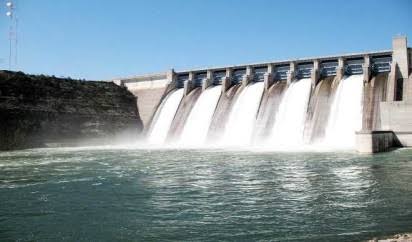By Atoyebi Nike
Africa’s major dams, once symbols of progress and vital for irrigation, are facing rapid decline, threatening the food security and livelihoods of millions, experts have warned.
According to the International Water Research Institute (IWRI) at Mohammed VI Polytechnic University (UM6P), aging infrastructure, severe siltation, and worsening climate impacts are undermining agricultural productivity.
Assistant Professors El Mahdi El Khalki and Nabil El Mocayd said Africa’s fertile lands are being compromised by poor water management and unpredictable weather, including prolonged droughts and extreme floods in countries such as Nigeria and Morocco.
“These challenges, caused by spatiotemporal climate variability and climate change, have cascading impacts on agriculture, livelihoods, and energy production,” the experts stated.
In Nigeria, shifts in rainfall and solar patterns have reduced the operational capacity of hydropower plants like the Jebba Dam, complicating irrigation. Morocco has suffered seven straight years of drought, depleting reservoirs, disrupting irrigation schedules, and affecting drinking water supply.
The researchers also flagged widespread siltation caused by deforestation and vegetation loss, which is reducing dam lifespans, as well as poor data collection on dam performance and water use.
They urged policymakers to adapt to climate change, manage rapid urbanization, and adopt modern technology, noting that “global food security cannot be achieved without unlocking the full potential of African agriculture.”
Recommended solutions include large-scale reforestation, innovative slope management, decentralized water storage, and rainwater harvesting measures already tested at UM6P’s experimental farm in Benguerir.
“At UM6P, our mission is centred on one guiding principle: valuing every single drop of water,” they said. “Water is the essential resource that must be managed more efficiently than ever.”
